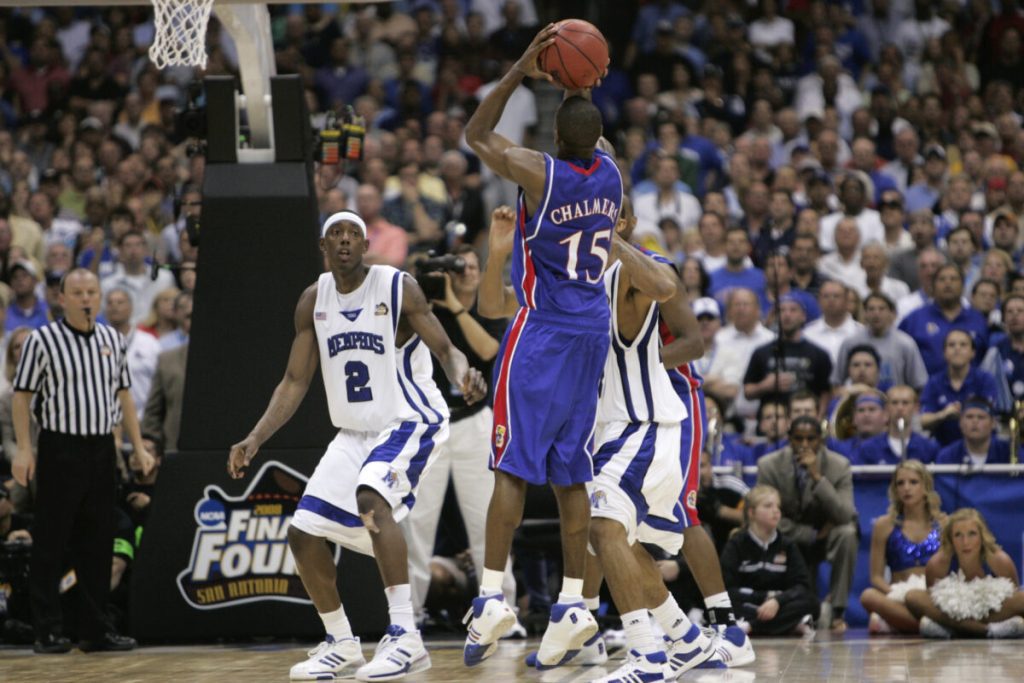Class-Action Lawsuit Against NCAA Dismissed

AP Photo/Mark Humphrey, File
FILE – A photo from April 7, 2008, showing Kansas player Mario Chalmers making a crucial three-pointer against Memphis during the NCAA championship game. Chalmers, along with fellow former Kansas player Sherron Collins, is among 16 ex-collegiate athletes suing the NCAA and various conferences for unauthorized profits from their names, images, and likenesses used in promoting the March Madness tournament.
A class-action lawsuit involving two former Kansas basketball players was dismissed on Monday by a judge, who determined that the claims were not filed in a timely manner and were barred by previous cases.
Mario Chalmers, who led the lawsuit as the principal plaintiff, represented a class of 16 athletes who played before June 15, 2016—an eligibility cut-off for the ongoing House v. NCAA antitrust settlement. This grouping included Chalmers’ former teammate, Sherron Collins.
The plaintiffs argued that the NCAA and other defendants, such as various college conferences, were in violation of antitrust laws by continuously using highlight reels of their performances. They claimed that this exploitation deprived them of the name, image, and likeness rights they had relinquished to participate in college sports, with accusations including conspiracy, violations of the Sherman Act, and unjust enrichment.
However, District Judge Paul A. Engelmayer dismissed these allegations, asserting that the athletes’ prior agreements allowing the NCAA to use their names and images meant any claims were beyond the four-year statute of limitations. He emphasized that past approvals for use of their NIL (name, image, likeness) do not equate to new infractions.
Additionally, Engelmayer noted that each plaintiff had been involved in previous settlements related to these issues and pointed out that many claims could have been covered by earlier litigation. This dismissal is part of a larger trend of legal actions from former athletes seeking restitution related to NIL rights, with many cases still pending.



